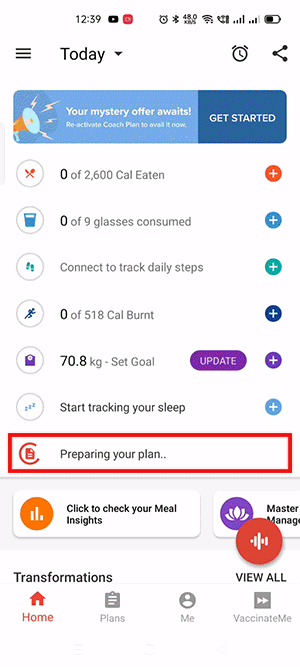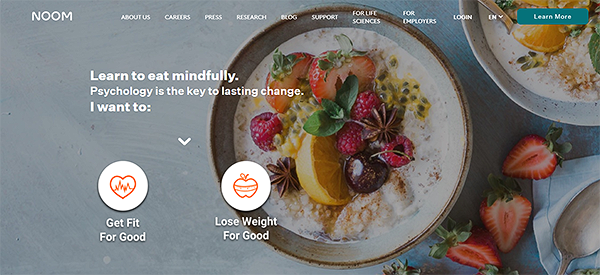What if there was a way to find out what goes in the back of your users’ minds? What if there was a secret guide to discover what your users want, or what makes them open and fall in love with your app each time?
Well, there is a way, and it is no secret. With all the user data we have at our disposal, it is not so difficult to understand your users’ behavior and alter your communication accordingly. Adding subtle psychological/emotional triggers do the job of hooking them to the app and turning it into a habit.
Psychological/tricks or triggers have been a popular method to attract audiences to the products since forever. From TV to OTT, the journey might have transformed but the strategy remains the same – using psychology to influence the user actions.
Many successful apps have adopted psychology as a tool to make data-driven decisions to achieve accurate results. They experiment with various psychological concepts as clickbait to measure the quantifiable impact or effectiveness of a feature or simply chaff out the ones that do not appeal to the users.
In this blog, we will explore some killer psychological hacks that app brands use to not just boost their business metrics but also to reduce customer resistance to build strong customer loyalty at every touchpoint.
However, before we get straight into the hacks, let us first understand what psychological tricks/triggers are and how they work.
Understanding psychological triggers and how they work
The human brain is like a machine that processes a lot of data every moment. To manage all this cognitive overload, the brain creates mental shortcuts called heuristics. These mental shortcuts or heuristics enable us to process all the information selectively. Oftentimes they result in errors in judgment and decision making. This is where psychological triggers come into the picture. They act as an invisible push generated by different cognitive quirks that influence the user behavior that generates desired results.
Think of psychological triggers as a guide that leads users to a seamless app experience by simplifying their decision-making process. Every human being is psychologically driven by the desire for pleasure and ignorance of pain. If at all, we take up a painful task it is only because we associate it with pleasure.
For example: Working out for 2 hours in a gym is a painful action associated with pleasure, i.e., lose weight or working a 9 to 5 job to be able to provide for the family.
So, let’s quickly look at some of the killer psychological hacks to make users fall in love with your app.
Read on to know more about psychological triggers.
Psychological hacks to amplify your app revenue
Psychological triggers help product managers to target different human emotions. This targeting helps them in building a loyal app user base and engaging the users by delivering the value they seek. There are different psychological hacks that you can experiment with to recognize the right trigger to engage and retain your users.
Hack 1- The concept of social proof – I bought it because all were buying it
Social influence plays a great role in human decision-making. People depend on others’ words to put their trust in a brand. As a product manager, you can leverage this behavior to show the prospective users, how using your app has benefitted your existing customer base. Engage new users by sharing success stories of people who achieved their goals using your app.
Let’s look at how HealthifyMe the largest digital wellness platform uses this psychological hack to influence new users to join their weight loss and diet program.

Image source: HealthifyMe
As first-time users tread through this app, it takes them through a customized evaluation to understand their goals, and simultaneously shows them testimonials of customers who have similar age profiles. This motivates the users into taking up the weight loss program.
By displaying profiles of similar age groups and their weight loss journeys, HealthifyMe triggers the emotion of trust amongst first-time users. Stimulating this emotion further, the app uses a nudge to persuade users to create a customized weight loss plan for them. By enabling the trust factor, HealthifyMe has been able to achieve 20 million active users to date.
So if you are looking to evoke the trust factor within your app, we recommend you give this hack a shot.
Hack 2 – Leverage the art of reciprocation – Give something before you take
You must have heard the saying, ‘good relations are given and take’, right! This psychological hack runs on that statement, where you have to give something valuable to your users before you gain it back. You can leverage the trigger of reciprocation by rewarding your first-time app users to use the app more frequently until it becomes a habit. These rewards can be in the form of a free trial, a motivation, or a glimpse of the experience they will gain through the app.
However, the key is to be generous, which takes us to our next example of the worldwide famous brand giant – Apple TV+
Apple uses this hack generously by giving their first-time users who signed up till July 2021, an edge over the latecomers by giving them a free trial of 21 months. The brand also furthered its generosity by offering a 1-year free trial to people who purchased any new apple device.

Image source: AppleTV+
This made users reciprocate to the lucrative offer by boosting Apple TV+’s subscriber base to a whopping 40 million in just one year. By showering a little generosity, Apple was able to convert its freemium users to premium subscribers. This hack helped the brand to unlock its value to the new users whilst getting value in return.
Now, this is definitely a hack worth a million!
Hack 3 – Find a common enemy – Nothing unites us like a common enemy
Remember the satisfaction you get when you sit with your friend and bitch about a common enemy (like boss, taxes, or wives) and a shared struggle? That’s exactly the kind of satisfaction your users derive when you stand against their common enemy. Because nothing brings people together like a common enemy.
Noom, another weight-loss app, uses this psychological hack to unite its users against a common enemy that is ‘dieting’. Let’s face it, most of us are either scared or simply hate to diet. Noom uses this emotional trigger to persuade users with a healthier meal plan for a long-term healthy life. It uses psychology to change the eating habits of users instead of recommending an upfront diet plan. Noom conducts various psychological evaluations to create a personalized lifestyle plan for each individual, which makes it stand out from its rivals.

Image source: Noom
You can use this psychological hack to highlight how collaborating with your app can help both the app (Noom) and the user, stand strong against a common challenge (dieting) which they are trying to mitigate in day-to-day lives.
Hack 4 – Trigger of scarcity – The more scarce the object, higher the value it holds
Similar to the concept of social proof, where people take the reference of other’s behavior to make a decision, the trigger of scarcity creates an impression that, if more people are buying an item, it is probably not to miss.
In the year 1975, a researcher named Worchel, Lee, and Adewole conducted a small experiment to test the psychology of scarcity. They placed two identical jars of cookies. Jar A contained 10 cookies while jar B contained only 2 cookies. They noticed that although the jars and cookies were the same, people preferred the cookies in jar B more than those in jar A. This is how using the hack of scarcity alters people’s perception of the value.
It is undoubtedly a powerful technique to boost your app conversions provided you use it with caution. Do not create fake scarcity, do not try to be manipulative and this hack will be worth your efforts.
World’s largest e-commerce giant Amazon uses the scarcity factor quite intuitively. The brand carefully tracks every user’s behavior towards a product. This behavior analysis is further used to nudge users to take an action on the items they have been eyeing on (or wishlisted).

Amazon uses phrases like ‘only 2 left in stock’ or ‘limited period offer’ or ‘Last chance’ to trigger scarcity in the minds of its users who are coaxed to make a transaction. This hack helps the brand to motivate users to make a purchase while the product is still in stock.
Use the right context to thrive and achieve long-term business goals
Psychology is undoubtedly a powerful tool for product managers to understand user’s perceptions towards their apps. You can kick-start with any hack out of the 4 or do A/B testing with two different hacks to see which one works for your app users.
However, we advise you to start with a well-crafted plan and a solid user context that aligns with your business goals. Because a goal without a plan is just a wish. And we can’t count on wishes to fulfill our goals. Therefore, it’s important to tailor your app journeys with the right user context and preferences to make worthy in-app experiences.
It’s also equally important to note that no matter what trigger you use to engage with your users, do it with responsibility and respect. Do not misuse these hacks for short-term or instant gains. Focus on building a sustainable relationship with your users that translates into a value-driven app experience.
To know how Netcore’s Product Experience platform can help you shape a great user experience, connect with us today!







